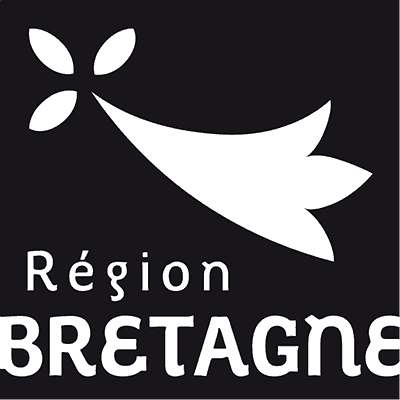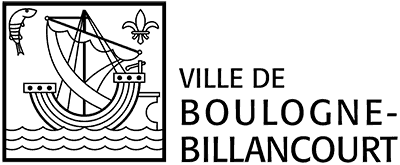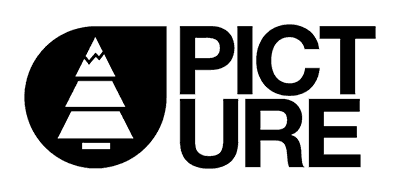Toilets: what does low-tech has to say
Date of publication : November 19th, 2020 - and it is not a hazard
Writer : Low-tech Lab
Place : the dry toilets in the Explore building in Concarneau - because yes, having a dry toilet in the office is possible
On the occasion of World Toilet Day, we wanted to speak out on the subject - too often taboo in Europe - of excrement. At a time when climate change is putting more and more pressure on our water resources, how long are we going to continue to “shit in drinking water”? And for half of the world’s population who does not know the luxury of having sanitation facilities, what are the alternatives to open defecation, with all the challenges of polluting the ecosystem’s water? A brief review of the low-tech solutions identified to date by the association and feedback from Nomade des Mers.
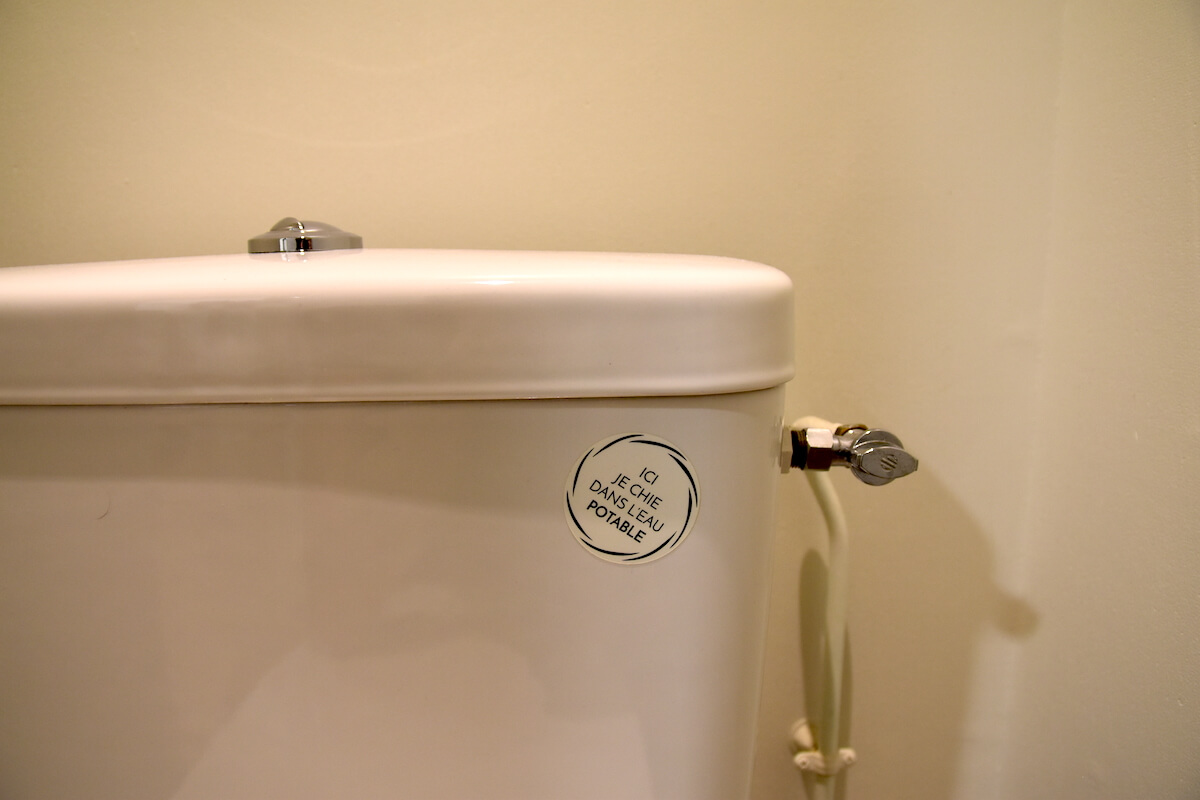
The dry toilet: the queen of the throne #
Dry toilets make it possible to reduce the water consumption of the household by 20%, as well as the creation of a usable humus for the garden for equal comfort of use (or even greater than conventional toilets - in any case those as users say, both when experimenting with low-tech habitat and aboard the Nomade des mers).
Operation of conventional dry toilets
There are many dry toilet systems. Here, the proposed model is said to be biomontrolled litter (TLB). It does not require any ventilation. The stainless steel bucket receives the droppings (urine and excrement), toilet paper as well as carbonaceous vegetable matter. The intake of dry plant matter rich in carbon (straw, dead leaves, sawdust) must be 30 times greater than the intake of excrement, which is rich in nitrogen. Whether in the room where the toilets are installed, or in the composting area, very few odors are emitted.
Good aeration of the compost is necessary so that the “aerobic” organisms, which need oxygen, can do the decomposition job properly. The shreds help create a well-aerated compost.
Advantages of the system
Although TLBs require the bucket to be emptied regularly (twice a week for a family of 4), they do not emit an odor or create unwanted noise unlike conventional toilets.
We inevitably think of this cult of the high-tech toilet in Japan where entrepreneurs compete in inventiveness to develop musical toilets and cover the sounds that we make on the saddle … useful / not useful? The question no longer arises when you stop defecating in water!
Excreta, waste or resources? #
But isn’t it our posture towards our excrement that needs to be reviewed? What would happen if we reversed the steam and from waste, it becomes a resource?
Usually considered waste, our excrement is passed through the pipes in so-called “black” water. A long purification process follows, producing in the process, the famous sewage sludge, the recovery of which is complex. By viewing this process cyclically as with manure from animal droppings, it is possible to see human excreta as a resource. By respecting good hygienic conditions, they can be easily composted and transformed into pathogen-free humus, which has nothing to do with excrement.
This is the approach that the crew of the Nomade des Mers have on board the catamaran and you will see that it allows a whole ecosystem to thrive.
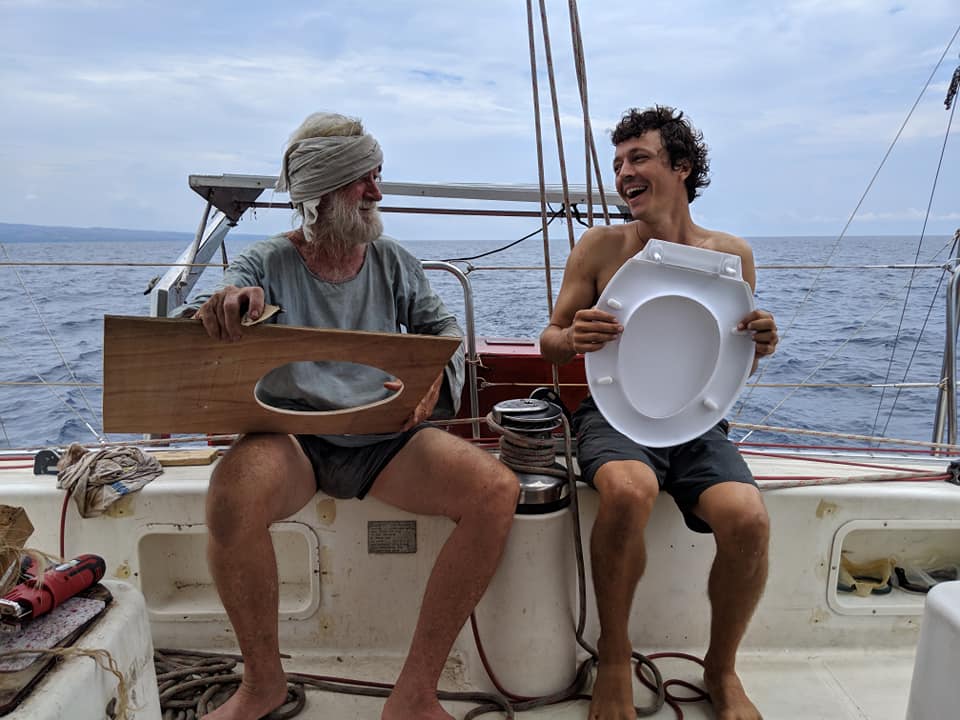
On Nomade des Mers nothing disappears, everything turns into a resource for other living beings!
Black soldier fly larvae are comfortably lodged at the bottom of the dry toilet. They love to bathe in pre-chewed food at 80% humidity.
Thanks to them, the faeces are transformed into a delicious, highly nutritious compost that can be added directly to the soil container crops.
The larvae degrade the dry toilets at an impressive rate. They divide the volume of waste by 5, so that for 4 people, the bucket has to be emptied only twice a month.
The larvae have been shown to neutralize most disease-transmitting bacteria, such as Salmonella spp or E.Coli, which limits the risk of disease transmission to animals and humans. And to complete the loop, the larvae are harvested and given to the cricket farm!
As for the urine, it is diverted by a urine separator integrated into the dry toilet. It’s liquid gold for hydroponic plants and spirulina!
Indeed, human urine is by far the most accessible, economical and ecological fertilizer: it is the most readily available source of organic nitrogen and phosphorus for algae and plants.
The only constraint, make sure you have a quality diet and hydration so that the excrement is also.
In short, on Nomade des Mers, when we go to the bathroom, we have the impression not to throw away, but to offer :)
